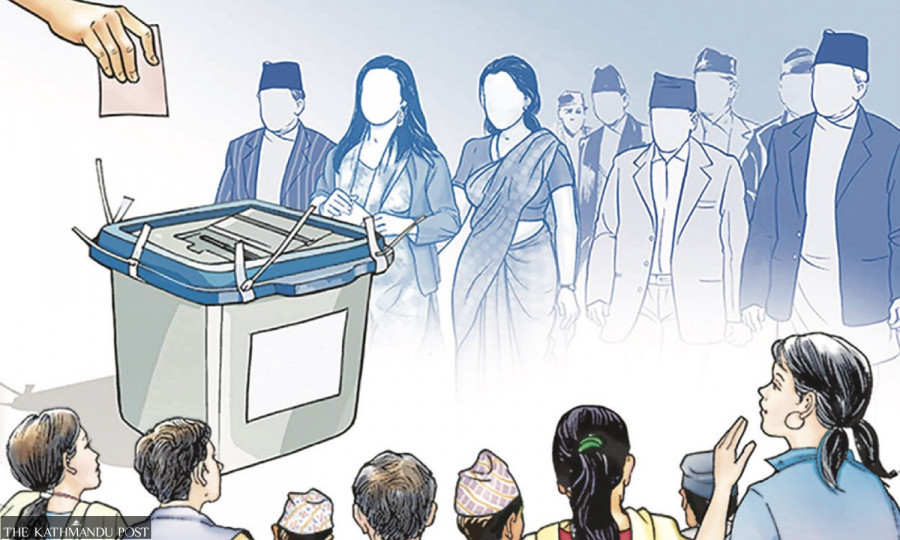Editorial
Timely electoral law
It would be prudent for the ministries to quickly forward election bills to the legislature.
The Election Commission has drafted the Bill to Amend and Consolidate the Election Law and forwarded it to the home ministry. The poll body has proposed some vital changes in election laws that include giving voters the right not only to elect someone but also reject certain candidates. It has proposed stricter provisions to ensure 33 percent women’s representation and make sure either chief or deputy chief of a local unit is female. The body has proposed provisions to enlist Nepali citizens staying abroad in the voters’ list and ensure their voting rights. Likewise, it has included some conditions to add transparency to election expenditures. But the draft, which was forwarded to the home ministry by the poll body over two months ago, has been stuck at the ministry.
Officials at the election commission have said the government authorities need to expedite the process to endorse the bill as it needs to be passed from different ministries and both the chambers of the federal Parliament, which may take years if not speeded up. Officials fear that if the government continues to be lacklustre in this effort, the Parliament may not pass the bill on time and the commission may not get time to implement reform measures proposed in the new law in the next election. The provisions included in the bill were deemed necessary by stakeholders for years. Besides, the Supreme Court ordered the government to make necessary arrangements to ensure voting rights for Nepali citizens in foreign countries. In a landmark decision in September 2018, the top court had ordered the government to do the same. According to top election officials and experts, arranging the voting of Nepalis living and working abroad is itself a daunting task.
Also, the apex court had given a similar verdict in 2014 with regard to ensuring the voters’ ‘right to reject’ candidates. The commission included those provisions as per the same verdicts. So the government has a responsibility to act on these issues. When it comes to formulating laws, it has become a tradition of successive governments to remain in deep slumber until the last moment and rush to pass them through fast-track procedures. This in itself is problematic. At times, the laws and procedures adopted are questioned by the stakeholders for the same reason.
Some of our election arrangements need timely updates as suggested by the commission while other provisions need to be amended in line with the court order. Also, the authorities must be ready to upgrade the law as required in the changed context. But given the new wave against traditional political forces seen in recent years, some of them may not be interested in ensuring voting rights for Nepalis abroad. But that would create yet another environment against the incumbency. So it would be prudent for the ministries to quickly forward the bills to the legislature, the main body to formulate laws. The lawmakers should get sufficient time to deliberate each and every change proposed in the bill and duly endorse them.




 8.79°C Kathmandu
8.79°C Kathmandu














